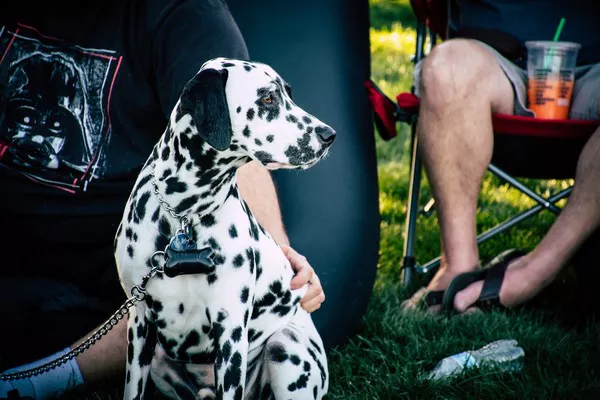The allure of the Bengal cat lies in its wild appearance coupled with a domestic demeanor. Among the various generations of Bengal cats, the F7 Bengal cat holds a special place. In this article, we delve into the intricate world of the F7 Bengal cat, exploring its definition, genetic background, physical characteristics, behavior, health, legal considerations, breeding, ownership, and the crucial aspect of conservation and ethics.
Definition and Origin:
The “F7” designation in Bengal cats refers to their filial generation. This system traces a Bengal cat’s lineage back to its wild ancestor, the Asian leopard cat (Prionailurus bengalensis). Each “F” stands for a generation removed from the Asian leopard cat. Therefore, an F1 Bengal is a first-generation hybrid with the Asian leopard cat, while an F7 Bengal is seven generations removed from its wild ancestor.
The relevance of the filial generation system lies in understanding the cat’s genetic makeup and behavior. As Bengal cats are selectively bred over generations, each subsequent filial generation tends to exhibit more predictable traits and behaviors resembling those of a domestic cat while retaining the exotic appearance of their wild ancestors.
Genetic Background:
The F7 Bengal cat is seven generations removed from the Asian leopard cat, making it primarily a domestic cat with minimal wild ancestry. This lineage results in a cat that retains the distinctive markings and traits of its wild ancestor while exhibiting more predictable behavior suitable for domestic life.
Selective breeding plays a pivotal role in maintaining and refining the Bengal cat’s genetic traits. Breeders carefully choose parent cats to preserve desirable characteristics such as coat pattern, coloration, and temperament while minimizing health issues associated with hybridization.
Physical Characteristics:
F7 Bengal cats typically showcase the striking appearance that characterizes the breed. They possess a muscular build, athletic physique, and distinctive coat patterns reminiscent of the Asian leopard cat. The coat of an F7 Bengal is often adorned with spots, rosettes, or marbling against a background of various colors, including brown, silver, snow, and charcoal.
Their coat is short to medium in length and has a luxurious, soft texture. The patterns on their coat contribute to their wild appearance, making them stand out among other domestic cat breeds. Despite their wild aesthetic, F7 Bengals are graceful and elegant creatures that exude charm and confidence.
Behavior and Temperament:
While earlier generations of Bengal cats may retain more wild instincts, F7 Bengals typically exhibit behavior and temperament more akin to that of a domestic cat. They are known for their intelligence, curiosity, and playful nature, making them delightful companions for households with active lifestyles.
F7 Bengals thrive on mental and physical stimulation, enjoying interactive play sessions and puzzle toys. They often form strong bonds with their human companions and are affectionate and loyal members of the family. Proper socialization from an early age helps mold their behavior, ensuring they are well-adjusted and confident cats.
Health and Lifespan:
Like all cat breeds, F7 Bengals are prone to certain health issues, albeit to a lesser extent compared to earlier generations with higher wild ancestry. Common health concerns include hypertrophic cardiomyopathy (a heart condition), patellar luxation (knee dislocation), and progressive retinal atrophy (a degenerative eye disease).
Regular veterinary check-ups, a balanced diet, and ample exercise are essential for maintaining the health and well-being of F7 Bengals. With proper care, they can live long and healthy lives, typically ranging from 12 to 16 years.
Legal Considerations:
While Bengal cats are legal to own in many regions, there may be specific regulations or restrictions governing ownership, particularly for earlier generations with more wild ancestry. It’s crucial for prospective owners to research local laws and regulations regarding the ownership of exotic cat breeds like Bengals.
Some regions may require permits or licenses for owning Bengal cats, while others may have outright bans or restrictions on certain generations. Compliance with legal requirements ensures the welfare of both the cats and their owners, fostering responsible ownership practices.
Breeding and Ownership:
Breeding F7 Bengal cats requires careful consideration and adherence to ethical breeding practices. Responsible breeders prioritize the health, temperament, and well-being of the cats over aesthetics or financial gain. They conduct genetic testing to screen for hereditary health issues and carefully select breeding pairs to maintain genetic diversity and minimize the risk of inherited diseases.
Prospective owners should seek reputable breeders who are transparent about their breeding practices and provide adequate support and guidance throughout the adoption process. Adoption from shelters or rescue organizations is also a commendable option for those looking to provide a loving home to a Bengal cat in need.
Conservation and Ethics:
The popularity of Bengal cats raises important ethical considerations regarding the impact on wild populations and the preservation of endangered species. While Bengal cats offer a glimpse into the beauty of wild felines, they are a product of selective breeding rather than conservation efforts aimed at protecting endangered species like the Asian leopard cat.
Ethical breeders and owners play a crucial role in promoting responsible stewardship of Bengal cats and raising awareness about the importance of conserving wild habitats and species. Supporting conservation organizations, advocating for habitat protection, and promoting education about the plight of endangered species are meaningful ways to contribute to wildlife preservation efforts.
In conclusion, the F7 Bengal cat represents a harmonious blend of wild beauty and domestic grace. Understanding its origin, genetic background, physical characteristics, behavior, health considerations, legal aspects, breeding practices, and ethical considerations is essential for fostering responsible ownership and appreciation of this unique breed. By prioritizing the welfare of Bengal cats and supporting conservation initiatives, we can ensure a brighter future for both domestic felines and their wild counterparts.
Related Topics:
























